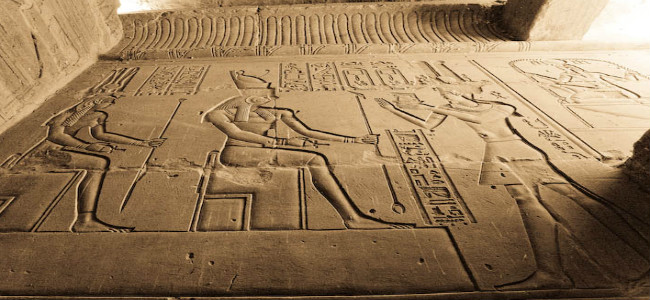Dakka Temple Facts, Plan, Architecture, History and Name
The Temple of Dakka, situated on the west bank of the Nile River in Nubia, Egypt, is a remarkable ancient Egyptian temple that offers a glimpse into the rich history and religious practices of the civilization. In this comprehensive guide, we will explore the significance, history, architecture, and cultural importance of the Temple of Dakka.
Significance of the Temple of Dakka
The Temple of Dakka holds immense significance in the religious context of ancient Egypt. Dedicated to the Nubian deity Thoth, the god of wisdom, writing, and knowledge, this temple served as an important center for religious rituals, offering prayers, and seeking divine guidance. It was believed to be a place where devotees could communicate with the gods and receive blessings.
Historical Background of the Temple of Dakka
The construction of the Temple of Dakka dates back to the reign of Pharaoh Ptolemy II in the 3rd century BC. It was built to assert the authority of the Ptolemaic dynasty over Nubia and to establish a religious and political presence in the region. The temple was strategically located along the Nile trade route and played a significant role in maintaining trade and cultural exchanges between Egypt and Nubia.
Architecture of the Temple of Dakka
The Temple of Dakka exhibits a unique blend of ancient Egyptian and Greco-Roman architectural styles. The façade of the temple features a grand entrance with towering columns and intricately carved reliefs depicting mythological scenes and religious rituals. The main hall, or hypostyle hall, is supported by columns adorned with hieroglyphic inscriptions and vibrant colors that have withstood the test of time. The sanctuary, located at the rear of the temple, housed the cult statue of the deity and was considered the most sacred part of the structure.
Religious Practices at the Temple of Dakka
The Temple of Dakka was a center for religious ceremonies and rituals dedicated to the worship of Thoth. The priests conducted daily offerings, performed rituals, and recited hymns to honor the deity. The temple played a vital role in promoting religious harmony and fostering a sense of community among the worshippers who gathered there to seek blessings, guidance, and spiritual enlightenment.
Cultural Importance of the Temple of Dakka
The Temple of Dakka represents not only a place of religious worship but also a symbol of cultural exchange and influence between ancient Egypt and Nubia. It serves as a testament to the shared history and cultural connections between these two civilizations. The temple's architectural and artistic features showcase the artistic mastery and craftsmanship of the ancient Egyptians, as well as the influence of Greek and Roman artistic elements.
Preservation and Restoration Efforts
Over the centuries, the Temple of Dakka has faced various challenges, including natural elements, erosion, and human interference. However, ongoing preservation and restoration efforts have been undertaken to protect and conserve this valuable cultural heritage. These efforts aim to ensure that future generations can continue to appreciate and learn from the temple's historical and artistic significance.
Visiting the Temple of Dakka
Today, the Temple of Dakka stands as an open-air museum, welcoming visitors from around the world to explore its majestic ruins and immerse themselves in the ancient Egyptian civilization. Guided tours and informative displays provide insights into the temple's history, architecture, and religious practices. The surrounding landscape, with its tranquil Nile River views, adds to the enchanting experience of visiting this archaeological treasure.
Egypt Tours Including Temple of Dakka
| Tour | Itinerary | Price |
|---|---|---|
Kasr Ibrim Lake Nasser Cruise |
4 Days | $ 599 |
Ms Eugenie Lake Nasser Cruise |
4 Days | $ 599 |
Steigenberger Omar El Khayam |
4 Days | $ 619 |
Ms Nubian Sea |
4 Days | $ 634 |
Eugenie Lake Nasser Cruise |
5 Days | $ 705 |
Ms Kasr Ibrim Lake Nasser Cruise |
5 Days | $ 705 |
Ms Steigenberger Omar El Khayam |
5 Days | $ 739 |
Nubian Sea Nile Cruise |
5 Days | $ 739 |
Movenpick Prince Abbas |
4 Days | $ 775 |
Sai Lake Cruise |
4 Days | $ 945 |
Prince Abbas Lake Nasser Cruise |
5 Days | $ 999 |
Sai Lake Nasser Cruise |
5 Days | $ 1319 |


 Italiano
Italiano
 Español
Español
